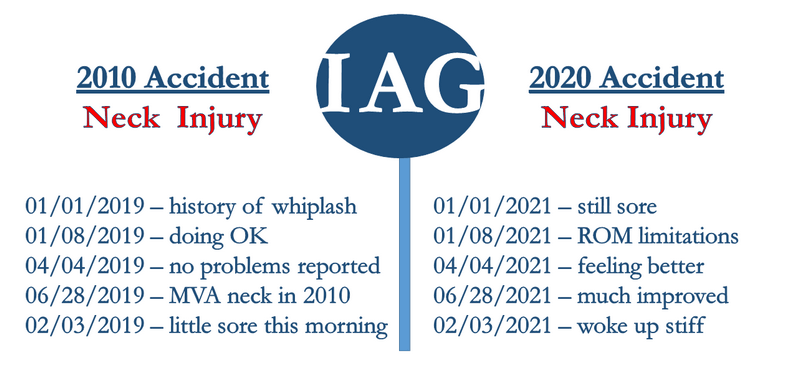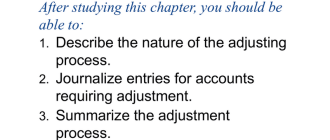
How Insurance Companies Try to Lowball You and How to Respond.
In today’s world, insurance is a necessity. From car accidents to health issues, we rely on insurance companies to protect us when disaster strikes. However, it’s no secret that some insurance companies try to lowball their customers, offering them less than what they deserve. Understanding how insurance companies try to lowball you and knowing how to respond is crucial to ensuring that you receive the compensation you are entitled to.
One of the key ways in which insurance companies try to lowball you is by downplaying the severity of your injuries or damages. They may argue that your injuries are not as serious as you claim or that your property damage is not as extensive. By doing this, they hope to reduce the amount they have to pay out to you.
Another tactic insurance companies use is delaying the claims process. They may take their time in investigating your claim or requesting additional documentation, all while hoping that you will become frustrated and settle for less. This tactic is especially common with complex or high-value claims.
It’s important to remember that insurance companies are businesses with their own interests in mind. They want to minimize their financial losses, and one way they do this is by trying to pay you as little as possible.
So how do you respond to these lowball tactics? First, it’s crucial to gather all the evidence and documentation you need to support your claim. This includes medical records, repair estimates, and any witness statements. Having strong evidence will help you counter any attempts by the insurance company to downplay your injuries or damages.
Additionally, consider consulting with an experienced personal injury lawyer or insurance claim attorney. They can provide you with valuable advice and representation throughout the claims process. Their expertise can help ensure that you receive a fair settlement and that your rights are protected.
Remember, insurance companies are not your friends. They may try to lowball you, but by being prepared, knowledgeable, and proactive, you can successfully navigate the claims process and receive the compensation you deserve.
Insurance Companies and Lowball Tactics: How to Respond
Insurance companies often try to lowball you when it comes to settling a claim. They use various tactics to try and reduce the amount they have to pay out, leaving you financially vulnerable. Understanding these tactics and knowing how to respond is crucial to protecting your interests and getting the full compensation you deserve.
One common tactic insurance companies use is offering a quick settlement that is significantly lower than the actual value of your claim. They may pressure you into accepting this lowball offer by emphasizing the time and effort a lengthy negotiation or legal battle could take. However, it is important to remember that accepting a low settlement could mean sacrificing a fair payout for your damages and losses.
Another way insurance companies try to lowball you is by disputing the extent of your injuries or property damage. They may argue that your injuries were pre-existing or that your property damage was not as severe as you claim. They may even hire their own experts to provide a biased opinion in their favor. It is important to collect all necessary evidence, such as medical records and repair estimates, to support your claim and refute their arguments.
Insurance companies may also delay the claims process as a tactic to wear you down and force you to accept a lower settlement. They may request unnecessary documentation, repeatedly ask for more information, or simply ignore your communication. It is important to stay organized, keep records of all correspondence, and promptly respond to their requests to avoid any unnecessary delays.
When facing lowball tactics from insurance companies, it is important to remain firm and stand your ground. Do not let them intimidate you into accepting less than you deserve. Be prepared to negotiate, present evidence, and potentially seek legal assistance if necessary. Remember, insurance companies are profit-driven businesses, and their primary goal is to minimize their payouts. Your goal, on the other hand, is to ensure you are fully compensated for your losses.
In conclusion, the tactics insurance companies use to lowball you can be frustrating and unfair. However, by understanding these tactics and knowing how to respond, you can level the playing field and protect your interests. Stay informed, gather evidence, and assert your rights to ensure you receive the full compensation you deserve.
Understanding Insurance Company Tactics
Insurance companies often use tactics to try and lowball you, offering a settlement that is much lower than what you deserve. It is important to understand these tactics and know how to respond in order to protect yourself and your rights.
One of the common tactics that insurance companies may use is to downplay the extent of your injuries or damages. They may argue that your injuries are not as serious as you claim or that the damage to your property is minimal. This is done in an attempt to minimize the compensation they have to pay you.
Another tactic commonly used by insurance companies is to delay the claims process. They may take a long time to respond to your claim, request unnecessary paperwork or information, or simply drag their feet in order to frustrate you into accepting a lowball settlement. It is important to stay persistent and keep track of all communication with the insurance company.
Insurance companies may also try to shift the blame onto you, claiming that you were partially or entirely at fault for the accident or incident. By doing this, they hope to avoid having to pay your claim altogether. In such cases, it is important to gather evidence, such as witness statements or police reports, to support your case.
Knowing how insurance companies operate and the tactics they employ can help you navigate the claims process more effectively. It is important to stand your ground and not settle for less than what you deserve. Consulting with an attorney experienced in dealing with insurance companies can also provide you with guidance and support in dealing with these tactics.
In summary, insurance companies may try to lowball you by downplaying your injuries or damages, delaying the claims process, or shifting the blame onto you. It is important to be aware of these tactics and know how to respond in order to protect your rights and maximize your compensation.
Common Lowball Tactics Used by Insurance Companies
Insurance companies often employ lowball tactics to try to pay you less than you deserve after an accident or claim. Below are some of the common ways they may try to undervalue your settlement:
- Offering a quick settlement: Insurance companies may try to pressure you into accepting a fast settlement offer before you fully understand the extent of your injuries or damages. They do this knowing that you may be eager for quick compensation and may not seek legal advice.
- Downplaying your injuries or damages: Insurers may downplay the severity of your injuries or the extent of damage to your property. They may even question the necessity of your medical treatments or repairs to minimize the amount they have to pay.
- Using comparative negligence: Insurance companies may try to shift some of the blame onto you, claiming that you were partially responsible for the accident or damage. This tactic aims to reduce their liability and decrease the amount they are required to compensate you.
- Using low estimates: Insurers may provide low estimates for the cost of repairs or replacement of your property. They may rely on their preferred repair shops or undervalue the true market value of your belongings.
- Delaying the claims process: Insurance companies may intentionally prolong the claims process, hoping that you will become frustrated and accept a lower settlement just to end the ordeal. They may also use this time to gather evidence to dispute your claim.
It is important to be aware of these tactics and to be prepared to counter them. Consider consulting with a personal injury attorney or insurance claims specialist who can help you navigate the process and negotiate a fair settlement.
The Importance of Documenting Your Claim
When insurance companies try to lowball you on your claim, documentation is essential. By carefully documenting every step of the claims process, you can provide evidence of the true value of your claim and effectively respond to the tactics used by insurance companies.
Why is documenting your claim important?
Insurance companies may try to undervalue your claim by downplaying the extent of the damages or disputing the cause of the incident. By documenting the details of your claim, you can provide undeniable evidence of the damages incurred, the cause of the incident, and any expenses or losses you have suffered as a result.
What should you document?
You should document everything related to your claim, including photos or videos of the damages, receipts for any repairs or replacements, medical bills or records if applicable, and any conversations or correspondence with the insurance company. It is important to keep a detailed record of dates, times, and names of anyone involved in the claims process.
How can proper documentation help you respond to lowball offers?
By having thorough documentation, you can effectively counter lowball offers from insurance companies. You will have evidence to support your claim’s true value, making it harder for the insurance company to justify their attempts to undervalue it. Additionally, having documented proof of the damages and expenses incurred can strengthen your negotiations and increase the likelihood of receiving a fair settlement.
In conclusion, properly documenting your claim is crucial when dealing with insurance companies that may try to lowball you. By providing detailed evidence of the true value of your claim, you can effectively respond to their efforts and increase your chances of receiving a fair settlement.
How Insurance Companies May Undervalue Your Damages
The way insurance companies assess and value your damages can significantly impact the compensation you receive after filing a claim. Unfortunately, some insurance companies may use tactics to undervalue your damages, resulting in lower payouts than you deserve.
Insurance companies may try to lowball you by offering settlements that are much lower than the actual value of your damages. They do this by intentionally downplaying the extent of your injuries or property damage. By doing so, they aim to minimize their financial liability and save money.
One common strategy used by insurance companies is to dispute or question the severity of your injuries or property damage. They may argue that your injuries are not as serious as you claim or that your property damage was pre-existing. This tactic is designed to cast doubt on your credibility and diminish the value of your claim.
Another way insurance companies may undervalue your damages is by using misleading comparisons. They might present you with settlement offers that are much lower than what similar cases have received in the past. By doing this, they hope to make you believe that their offer is fair and reasonable, even if it falls short of your actual damages.
It is important to respond to these tactics by being prepared and knowledgeable about the value of your damages. Collect and document evidence that supports the severity of your injuries or property damage. This can include medical records, photographs, repair estimates, and expert opinions.
Consider seeking legal advice from an experienced personal injury attorney who can help you navigate the claims process. An attorney can protect your rights, negotiate on your behalf, and ensure that you receive the compensation you deserve. They can also help you understand the true value of your damages, taking into account factors such as medical expenses, lost wages, pain and suffering, and future damages.
Remember, insurance companies may try to undervalue your damages, but you have the right to fight for fair compensation. Be proactive, seek legal guidance, and advocate for your rights to ensure you receive the full and fair compensation you are entitled to.
Tactics Insurance Companies Use to Minimize Medical Treatment Costs
Insurance companies are known for using various tactics to minimize the costs associated with medical treatment. These tactics are often aimed at reducing the amount of money they have to pay out to policyholders, which can leave individuals with inadequate coverage and financial strain.
One tactic insurance companies try is lowballing. They may offer low settlement amounts or discounts on medical bills in an attempt to save money. It’s important to be skeptical of these initial offers and to carefully review your policy to ensure you are receiving the full benefits you are entitled to.
When faced with a low settlement offer, it’s crucial to respond assertively. You can gather evidence to support the true value of your claim, such as medical records, expert opinions, and testimonies from healthcare providers. Presenting this evidence can strengthen your case and help you negotiate a fair settlement.
Another tactic used by insurance companies is delaying or denying claims. They may request excessive documentation or use loopholes in the policy language to avoid paying for certain treatments or services. In these situations, it’s essential to read and understand your policy thoroughly and seek assistance from a legal professional if necessary.
Insurance companies may also use tactics like requiring pre-authorization for medical treatments or limiting coverage to only certain providers or facilities. These actions can limit your options and make it difficult to receive the necessary care. It’s important to read the fine print of your policy and understand any restrictions or limitations before seeking medical treatment.
When dealing with insurance companies, it’s essential to be informed, persistent, and proactive in protecting your rights. Take the time to educate yourself about your policy, understand your coverage, and explore all available options. If you believe you are being treated unfairly or denied necessary medical treatment, consider seeking legal advice to ensure you receive the care you deserve.
Recognizing Delaying Tactics Used by Insurance Companies
When dealing with insurance companies, it’s important to be aware of the delaying tactics they may use in order to lowball your claim. These tactics are designed to prolong the claims process and discourage you from pursuing your rightful compensation. By understanding how insurance companies operate, you can better respond to their tactics and protect your interests.
Here are some common delaying tactics used by insurance companies:
- Requesting unnecessary documentation: Insurance companies may ask for irrelevant or excessive documentation to complicate the claims process. Be sure to carefully review any requests and only provide the necessary information.
- Dragging out the investigation: Insurance companies may intentionally delay their investigation into your claim in order to buy more time. If you feel that the investigation is taking an unusually long time, consider reaching out to the company to inquire about the status.
- Requiring multiple estimates: Some insurance companies may require multiple estimates for repairs, even though this is not necessary. This can cause further delays and frustration. Be prepared to challenge such requirements if they are not justified.
- Offering lowball settlements: Insurance companies may initially offer settlements that are far below the value of your claim. This is a common tactic to see if you will accept a smaller amount. It is important to carefully evaluate any settlement offers and negotiate for a fair amount.
- Using complex legal language: Insurance companies may use complicated legal jargon in their communications with you to confuse or intimidate you. Take the time to understand the terms and conditions of your policy and seek legal advice if needed.
- Repeatedly requesting the same information: Sometimes insurance companies will ask for the same information multiple times, causing unnecessary delays. Keep a record of the information you have already provided and politely request clarification if you are unsure why it is being requested again.
By recognizing these delaying tactics, you can effectively respond and protect your rights when dealing with insurance companies. It is important to stay organized, document all interactions, and consider seeking legal advice if necessary. Remember, you deserve fair treatment from your insurance company, so don’t let these tactics deter you from pursuing your rightful compensation.
How Insurance Companies Evaluate Vehicle Damage Claims
When it comes to evaluating vehicle damage claims, insurance companies will often try to minimize their payout as much as possible. They may use various tactics to make you settle for less than you deserve, a practice commonly known as “lowballing”.
Insurance companies employ a team of claims adjusters whose main goal is to save the company money. They will carefully review the evidence presented, such as photographs, repair estimates, and expert opinions. However, it’s important to remember that their assessment may not always be fair or accurate.
One way insurance companies try to devalue your claim is by disputing the severity of the damage. They may argue that the damage is not as extensive as you claim or that it was pre-existing. They may also bring up depreciation and argue that your vehicle’s value has already decreased over time.
To respond to these tactics, it’s crucial to gather as much evidence as possible to support your claim. Take detailed photographs of the damage from different angles, and consider getting a second opinion from an independent repair shop. Additionally, keep records of any repairs or maintenance done on the vehicle prior to the accident to counter any pre-existing damage arguments.
Another way insurance companies may try to lowball you is by offering a quick settlement. They may pressure you into accepting a lower amount before you have a chance to fully assess the damage and understand your rights. It’s important to remember that you have the right to refuse any settlement offers that do not adequately compensate you for your losses.
In the event that the insurance company’s evaluation does not align with yours, and you believe you are being treated unfairly, it may be necessary to seek legal advice. An experienced attorney can help guide you through the claims process, negotiate with the insurance company on your behalf, and ensure that you receive the compensation you deserve.
In conclusion, insurance companies will often try to minimize their payouts by employing various tactics to undervalue your vehicle damage claim. It’s important to be aware of these tactics and respond with strong evidence to support your claim. Don’t settle for less than you deserve and consider seeking legal help if necessary.
The Role of Independent Assessors in Insurance Claims

Insurance companies often try to lowball you when it comes to settling a claim. They may use various tactics to pay you less than what you deserve. This is where independent assessors play a crucial role.
Independent assessors are professionals who are hired to evaluate the damage and assess the value of the claim. Unlike insurance company adjusters who work for the insurance companies, independent assessors are impartial and unbiased. Their primary responsibility is to ensure that you are fairly compensated for your losses.
When insurance companies try to offer you a lowball settlement, independent assessors step in to provide an objective analysis of the situation. They review the evidence, such as photographs, repair estimates, and medical records, to determine the true value of your claim.
Independent assessors are knowledgeable about insurance policies, laws, and regulations. They have a deep understanding of the claims process and can navigate through the complexities to help you get the compensation you deserve.
When dealing with insurance companies, it is important to have an independent assessor on your side. They can negotiate with the insurance company on your behalf, ensuring that your interests are protected. They can also provide expert advice and guidance throughout the claims process.
In summary, independent assessors play a crucial role in insurance claims. They act as a counterweight to insurance companies’ attempts to lowball you. With their expertise and impartiality, they help ensure that you receive a fair settlement for your losses.
Strategies for Negotiating with Insurance Adjusters
When dealing with insurance adjusters, it’s important to understand the strategies they may employ to lowball you and how to respond effectively. Insurance companies often try to minimize the amount they pay out for claims, but with the right approach, you can negotiate a fair settlement. Here are some strategies to keep in mind:
1. Gather evidence and document all damages: Before entering into negotiations, make sure you have all the necessary documentation to support your claim. This includes photographs, repair estimates, medical records, and any other relevant evidence. Being prepared shows the insurance adjuster that you are serious about your claim and have the evidence to back it up.
2. Know your policy: Familiarize yourself with the terms and conditions of your insurance policy. This will help you understand what you are entitled to and what the insurance company is obligated to cover. Knowing your rights as a policyholder can empower you during negotiations.
3. Be patient and persistent: Negotiating with insurance adjusters can be a lengthy process. It’s important to remain patient and persistent throughout. Don’t be afraid to follow up regularly and request updates on your claim. Being persistent shows the insurance company that you are determined to reach a fair settlement and won’t easily be lowballed.
4. Consider seeking legal advice: If you feel overwhelmed or believe that the insurance company is acting in bad faith, it may be beneficial to consult with a lawyer specializing in insurance claims. They can guide you through the negotiation process and ensure you receive the compensation you deserve.
5. Be professional and polite: While it’s understandable to feel frustrated or angry during the negotiation process, it’s important to maintain a professional and polite demeanor. Being respectful towards the insurance adjuster can help build rapport and improve the chances of reaching a mutually beneficial agreement.
6. Be firm and assertive: Don’t be afraid to stand your ground and advocate for yourself. If the insurance adjuster presents a lowball offer, calmly but firmly explain why it is inadequate and provide evidence to support your stance. By being assertive, you demonstrate your determination to achieve a fair settlement.
By employing these strategies when negotiating with insurance adjusters, you can increase your chances of getting the compensation you deserve. Remember to stay informed, persistent, and professional throughout the process, and don’t hesitate to seek legal advice if necessary.
The Legal Options When Dealing with Lowball Insurance Offers
When insurance companies try to lowball you with settlement offers, it’s important to know that you have legal options to fight for fair compensation. Accepting a lowball offer can leave you struggling to cover your expenses, so it’s crucial to understand how to respond.
Here are some legal options to consider when dealing with lowball insurance offers:
| 1. Evaluate the offer | Take the time to carefully review and evaluate the insurance company’s offer. Look for any discrepancies or undervalued aspects of your claim. It’s important to have a clear understanding of the true value of your case. |
| 2. Gather supporting evidence | Collect any relevant documents, such as medical records, repair estimates, or witness statements, that can support your claim. This evidence can help strengthen your case and counter the lowball offer. |
| 3. Consult with an attorney | Seek legal advice from an experienced personal injury attorney who specializes in insurance disputes. They can provide guidance on the best course of action and help negotiate a fair settlement on your behalf. |
| 4. File a complaint | If negotiations with the insurance company are unsuccessful, you may choose to file a complaint with your state’s insurance regulatory agency. This can help draw attention to unfair practices and potentially lead to a more favorable resolution. |
| 5. Consider litigation | If all else fails, you may need to file a lawsuit against the insurance company. Litigation can be a lengthy and complex process, so it’s important to have an attorney who can guide you through each step and fight for your rights in court. |
Remember, insurance companies have a vested interest in minimizing their payout, but you have the right to fair compensation. By understanding your legal options and seeking the necessary assistance, you can better navigate the process and increase the likelihood of receiving a settlement that accurately reflects the damages you have suffered.
Common Mistakes to Avoid During the Insurance Claim Process
When filing an insurance claim, it is important to be aware of common mistakes that could potentially harm your chances of receiving a fair settlement. Understanding these mistakes and knowing how to avoid them can help you navigate the process more effectively. Here are some key errors to watch out for:
1. Failing to respond promptly: It is crucial to respond to insurance company requests or inquiries in a timely manner. Delays in communication can lead to unnecessary complications and may give the insurance company an opportunity to lowball your claim.
2. Not knowing your policy coverage: Familiarize yourself with the details of your insurance policy, so you know what is covered and what is not. This knowledge will enable you to negotiate confidently with the insurance company and avoid accepting a lower settlement than you deserve.
3. Failing to gather proper documentation: Collect all the relevant documentation to support your claim, such as medical records, repair estimates, and receipts for expenses incurred as a result of the incident. This evidence is crucial in establishing the validity and value of your claim.
4. Not seeking legal advice: If you are unsure about any aspect of your insurance claim or feel that the insurance company is not offering a fair settlement, consult with a lawyer specializing in insurance claims. They can provide you with guidance and help you navigate the process effectively.
5. Accepting the initial settlement offer: Insurance companies often offer a low initial settlement to see if you will accept it without questioning or negotiating. It is important to carefully evaluate the offer and consider consulting with a lawyer or public adjuster before accepting anything. They can help determine the true value of your claim and negotiate a fair settlement on your behalf.
6. Not keeping records of all communication: Keep a record of all communication with the insurance company, including dates, times, and details of phone calls, emails, and letters exchanged. This documentation will serve as evidence and can be useful if any disputes arise during the claims process.
7. Settling too quickly: Rushing to settle your insurance claim without fully understanding the extent of your damages can be detrimental. Take the time to assess the full impact of the incident and consult with experts if necessary to ensure you receive a fair settlement.
By avoiding these common mistakes, you can increase your chances of receiving a fair insurance settlement and ensure that your rights are protected throughout the claims process.
undefined
What are some common tactics used by insurance companies to lowball claimants?
Insurance companies may use various tactics to lowball claimants, such as offering a quick settlement that is much lower than the actual value of the claim, delaying the claims process, denying valid claims based on technicalities, or downplaying the extent of injuries or damages.
How can insurance companies try to minimize the value of a claim?
Insurance companies can try to minimize the value of a claim by disputing the liability of their insured party, hiring their own experts or adjusters to assess the damages, suggesting that the damages were pre-existing, or arguing that the claimant was partially at fault for the incident.
What should I do if an insurance company offers me a low settlement amount?
If an insurance company offers you a low settlement amount, you should not immediately accept it. Instead, thoroughly evaluate your damages and consult with an attorney or a public adjuster to determine the fair value of your claim. You can then negotiate with the insurance company and provide evidence to support your case.
What steps can I take to protect myself from insurance companies trying to lowball me?
To protect yourself from insurance companies trying to lowball you, it is important to document and gather all relevant evidence related to your claim, including photos, videos, medical records, and repair estimates. It is also advisable to maintain clear and consistent communication with the insurance company, and consider seeking legal representation if you believe your claim is being unfairly undervalued.
Can insurance companies refuse to pay a claim even if it is valid?
Yes, insurance companies can refuse to pay a valid claim by disputing the facts, asserting policy exclusions, or claiming that the damages or injuries are not covered. In such cases, claimants may need to file a lawsuit or seek alternative dispute resolution methods to recover the compensation they are entitled to.
What are some tactics that insurance companies use to lowball claimants?
Insurance companies may use tactics such as denying or delaying claims, undervaluing property damage, disputing the extent of injuries, and offering low settlements.






